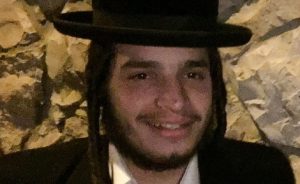 In this week’s reading, we are told that “Yisro heard all that G-d had done for Moshe and Israel his nation, for HaShem had taken Israel from Egypt” [18:1].
In this week’s reading, we are told that “Yisro heard all that G-d had done for Moshe and Israel his nation, for HaShem had taken Israel from Egypt” [18:1].
Rashi (Rabbi Shlomo Yitzchaki) asks: what did Yisro hear? He answers, “the parting of the Reed Sea, and the war with Amalek.”
These two events were, to say the least, public knowledge. The Medrash says that at the moment that the sea parted for the Jews, every body of water, even every glass of water, also parted. This happened so that everyone would know about the miracle done for the Jews at that moment. So, yes, Yisro heard, and saw. He was sitting in his living room about to have his tea, and it split before his eyes. But this also happened for every other Midyanite, and every other person. So why does the Torah say that Yisro heard? Everyone heard!
We learn from Yisro the essence of “hearing.” A “shomea,” one who hears, does not merely have a functioning inner ear. Yisro, the “Kohen Midyan”, the priest of the Midyanites, dropped everything to go join the Nation of Israel. Why? Because he alone really heard the message. G-d sent the message to every person on earth — but Yisro heard.
While computers are doing a better and better job of automating this task, it is still important that we save our work frequently. Anyone with computer experience has experienced the unique frustration of spending an hour or more at the keyboard working on an important task, and then having the computer freeze up or power off without the opportunity to save one’s work. Whatever we do not commit to the computer’s memory, we lose.
We ourselves are not all that different. We often claim to “hear” something that goes “in one ear and out the other.” G-d sends us messages. He enters the data. But it is our responsibility to process and save that data. When something happens, when we receive a message, we can only say we have truly “heard” if we remember, understand, and learn from the experience. In the Torah, “hearing” means “Sh’ma Yisroel” [Hear, Israel, the L-rd our G-d, the L-rd is One], and “Naaseh V’Nishma” [We will do, and we will hear…].
Did we get the message?
[Based upon a class by Rav Asher Z. Rubenstein zt”l of Jerusalem.]

 “When I got to the station, there was a Charedi bachur sitting there, and he asked me if he could help me. I told him the story and he told me: ‘I came here 25 minutes ago and saw the bag. I opened it and saw a large sum of money. I told myself that I’ll wait here a quarter of an hour, and if the man didn’t come, I’ll put up a note with the number of my cellphone so he could reach me.
“When I got to the station, there was a Charedi bachur sitting there, and he asked me if he could help me. I told him the story and he told me: ‘I came here 25 minutes ago and saw the bag. I opened it and saw a large sum of money. I told myself that I’ll wait here a quarter of an hour, and if the man didn’t come, I’ll put up a note with the number of my cellphone so he could reach me. Rabbi Yisrael Salanter, founder of the Mussar movement, explained the Mishnah as follows: When you take a dog out for a walk, the dog goes running ahead, and to the outside observer it might look like the dog is leading, and you are following. But what if you decide to turn right at a corner, and the dog continues on ahead? Within seconds, the dog will be out in front of you once again, running ahead in the new direction you have chosen. The dog isn’t really leading at all.
Rabbi Yisrael Salanter, founder of the Mussar movement, explained the Mishnah as follows: When you take a dog out for a walk, the dog goes running ahead, and to the outside observer it might look like the dog is leading, and you are following. But what if you decide to turn right at a corner, and the dog continues on ahead? Within seconds, the dog will be out in front of you once again, running ahead in the new direction you have chosen. The dog isn’t really leading at all.